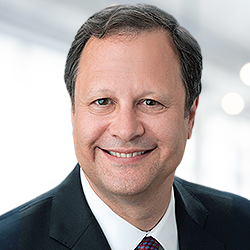Pomona Investment Fund
Celebrating 10 years of bringing institutional private equity exposure to individual investors
Think private equity is just for large institutions?
Pomona Investment Fund (PIF) is a registered investment vehicle designed to give investors easier access to private equity investing. The Fund's strategy seeks long-term capital appreciation primarily through the purchase of secondary interests in seasoned private equity funds, by making primary commitments to private equity funds and through direct investments in opportunities alongside private equity managers.
Next subscription period ends: January 2, 2026*
Performance update, investment activity, and opportunities in secondaries.
High-quality assets at a discount
21%
Average discount at purchase²
2.5x
Average exit multiple on invested capital³
14.73%
Average annual return since inception⁴
Private equity with a liquidity† option
No lock up period. Well-diversified portfolio for active cash flow stream.1
Enhanced risk/return potential
Private equity secondaries have offered lower risk and higher potential returns to a traditional stock/bond portfolio.5
As of 12/31/24. Numbers may not add up due to rounding. Assumptions: Portfolio with Secondary PE takes 50% of the allocation from Bonds and Stocks each. Indices used: Cambridge Associates Secondary Index; Stocks: MSCI World Index; Bonds: Bloomberg U.S. Aggregate Bond Index.⁵ The data above is for hypothetical purposes and is intended to show potential returns that may be achieved based on the above investment allocations across equity, private equity, and fixed income in a particular portfolio. It Is not intended to show actual returns for each portfolio in every case. Investing in private equity is a risk and there is no guarantee that any investment will be profitable; an investor may lose all or some of its investment. The Cambridge Secondary Funds Index is based on unaudited quarterly performance data compiled from 330 secondary funds (excluding hard assets funds), including fully liquidated partnerships, formed between 1991 and 2023. The equity allocation is the MSCI World Index. The bond allocation is Bloomberg US Aggregate Bond Index. Past performance is not an indication of future results.
Fund Performance
Net performance (%)
| Ticker | Inception date |
NAV / share |
1 Mo | YTD | Since inception (Class I) |
Since inception (Class A) |
|
|---|---|---|---|---|---|---|---|
| Class I | XPFIX | 04/01/18 | $16.80 | -1.32 | +5.35 | +14.37 | — |
| Class A | XPFAX | 05/07/15 | $15.69 | -1.36 | +4.82 | — | +12.36 |
| MSCI World Index | — | — | — | +0.31 | +20.59 | +12.71 | +11.44 |
| Ticker | Inception date |
Standard deviation** |
QTD | YTD | 1 year | 3 year | 5 year | 10 year* | Since inception (Class I) |
Since inception (Class A) |
|
|---|---|---|---|---|---|---|---|---|---|---|---|
| Class I* | XPFIX | 04/01/18 | +9.73 | +1.80 | +6.18 | +7.86 | +9.53 | +14.98 | +13.60 | +14.82 | — |
| Class A | XPFAX | 05/07/15 | +8.46 | +1.66 | +5.74 | +7.26 | +8.91 | +14.33 | +13.13 | — | +12.65 |
| MSCI World Index | — | — | — | +7.36 | +17.83 | +17.75 | +24.29 | +14.94 | +13.00 | +12.65 | +11.38 |
*Class I Shares commenced operations on April 1, 2018. Prior to that date, the performance of Class I Shares (10-year returns) shown in the table above is that of Class A Shares. Performance has not been adjusted to reflect the lower expenses of Class I Shares. The 10-year returns for Class I Shares would have had been higher because: (i) Class A Shares and Class I Shares represent interests in the same portfolio of securities; and (ii) Class I Shares have lower expenses.
**The annualized standard deviation for the MSCI World Index since Class I and Class A inceptions is 17.95% and 15.80%, respectively.
Past performance is no guarantee of future results. Investment return and principal value will fluctuate, and shares, when redeemed, may be worth more or less than their original cost. Current performance may be lower or higher than the past performance quoted.
Total Net Return data does not take into consideration account transaction fees or brokerage commissions and are net of management and performance incentive fees or allocations payable pursuant to the respective organizational documents of each Investment Fund. The NAV of the Fund will equal, unless otherwise noted, the value of the total assets of the Fund, less all of its liabilities, including accrued fees and expenses, each determined as of the relevant Valuation Date. Total Net Return based on net asset value per Share is the combination of changes in net asset value per Share and reinvested distributions at net asset value per Share, if any.
Historical net performance (%)* as of 09/30/2025
| Class I | Q1 |
Q2 |
Q3 |
Q4 |
YTD |
MSCI World Index YTD |
|---|---|---|---|---|---|---|
| 2025 | 1.13 |
3.14 |
1.80 |
— |
6.18 |
17.83 |
| 2024 | 3.62 |
0.44 |
3.06 |
1.58 |
8.95 |
19.19 |
| 2023 | 1.03 |
3.04 |
2.71 |
2.55 |
9.65 |
24.42 |
| 2022 | 0.18 |
-4.14 |
-1.07 |
3.60 |
-1.57 |
-17.73 |
| 2021 | 13.75 |
10.37 |
8.63 |
5.69 |
44.14 |
22.35 |
| 2020 | -8.67 |
13.19 |
9.47 |
11.66 |
26.36 |
16.50 |
| Class A | Q1 |
Q2 |
Q3 |
Q4 |
YTD |
MSCI World Index YTD |
|---|---|---|---|---|---|---|
| 2025 | 0.99 |
3.00 |
1.66 |
— |
5.74 |
17.83 |
| 2024 | 3.47 |
0.30 |
2.92 |
1.43 |
8.34 |
19.19 |
| 2023 | 0.89 |
2.91 |
2.54 |
2.38 |
8.99 |
24.42 |
| 2022 | 0.04 |
-4.28 |
-1.20 |
3.47 |
-2.11 |
-17.73 |
| 2021 | 13.60 |
10.22 |
8.48 |
5.55 |
43.35 |
22.35 |
| 2020 | -8.79 |
13.06 |
9.32 |
11.50 |
25.69 |
16.50 |
Index YTD represents the MSCI World Index.
Past performance is no guarantee of future results. Investment return and principal value will fluctuate, and shares, when redeemed, may be worth more or less than their original cost. Current performance may be lower or higher than the past performance quoted.
*Total Net Return data does not take into consideration account transaction fees or brokerage commissions and are net of management and performance incentive fees or allocations payable pursuant to the respective organizational documents of each Investment Fund. The NAV of the Fund will equal, unless otherwise noted, the value of the total assets of the Fund, less all of its liabilities, including accrued fees and expenses, each determined as of the relevant Valuation Date. Total Net Return based on net asset value per Share is the combination of changes in net asset value per Share and reinvested distributions at net asset value per Share, if any.
*Cumulative Distributions/Share may include a return of capital.
Definitions And Disclosures
Record Date: Record date is the date by which a shareholder must own Shares to receive the distribution.
Ex-Date: Ex-date is the date on which a shareholder who purchases Shares will not be eligible to receive the distribution.
Payable Date: Payable date is the date on which a shareholder is paid the distribution.
Reinvestment Price (NAV): The NAV/Share prior to the distribution, less the amount of the NAV/Share of the distribution.
Short Term Capital Gains: The profit realized from the sale of securities held for less than one year.
Long Term Capital Gains: Gain on the sale of a security where the holding period was 12 months or more and the profit was subject to the long-term capital gains tax.
Cumulative Distributions/Share: Represents the aggregate amount of capital distributed (per share) since each share classes inception as of each respective distribution date. The tax treatment and characterization of the Fund's distributions may vary significantly from time to time depending on the components of the Fund's net investment income, which may include capital gains, dividends and interest and/or a return of capital. The final composition of the tax characteristics of the distributions cannot be determined with certainty until after the end of the year, and will be reported to shareholders at that time. To the extent that distributions constitute a return of capital, such distributions will have the effect of reducing your cost basis in the Fund's shares and thereby increasing the amount of capital gain, if any, or decreasing the amount of capital loss, if any, that you will realize when selling or exchanging Fund shares. The tax treatment and characterization of the Fund's distributions may vary significantly from time to time depending on the components of the Fund's net investment income, which includes capital gains, dividends and interest and/or a return of capital when applicable. There can be no assurance that the Fund will be able to declare a distribution in any given year.
Fund distributions will vary depending upon the performance and capital activity of the Fund’s investments. Past distributions are no guarantee of future distributions or performance results.
The final determination of the source and tax characteristics of all distributions will be made after year-end and reported to you on either Form 1099-DIV or Form 1099-B, as applicable. Each Form 1099-DIV or Form 1099-B, which is mailed after the close of the calendar year, will specify how the distributions paid by the Fund during the year should be characterized and reported on your tax return (e.g., capital gain, ordinary income and/or return of capital).
Neither Voya and its affiliates nor Pomona and its affiliates provide tax advice. Always consult a tax professional regarding your specific financial or tax situation.
This information is not intended to cover the complexities of a shareholder's individual tax situation. Because tax laws vary among states, you should consult your tax advisor about the specific rules in the state(s) in which you pay income taxes.
Featured Insights








Fund Literature
Fund Overview & Strategy
Forms, Applications & Reports
Our Team
Service Your Account
For Current Investors
Direct Investors:
- Access Your Account: Log in to the Investor Portal to view quarterly statements, download tax forms, and manage document delivery options.
- Need Assistance? Contact Ultimus Fund Solutions at 1-844-2-Pomona (1-844-276-6662), Monday to Friday, 8:30 AM - 6:00 PM ET.
Investors via Custodial Platforms:
- Account Support: Reach out to your respective custodial platform or financial advisor for account-related inquiries.
For Prospective Investors
- Interested in Investing? Consult your financial advisor to determine if the Pomona Investment Fund aligns with your investment goals.
- Contact Voya's Private Wealth & Advisory Team:
- Phone: 1-844-2-Pomona (1-844-276-6662)
- Email: PomonaInvestmentFund@voya.com
- Hours: Monday to Friday, 8:30 AM - 6:00 PM ET
For Financial Professionals
- Contact Voya's Private Wealth & Advisory Team:
- Phone: 1-844-2-Pomona (1-844-276-6662)
- Email: PomonaInvestmentFund@voya.com
- Hours: Monday to Friday, 8:30 AM - 6:00 PM ET
Pomona Management LLC is the adviser for Pomona Investment Fund and Voya Investments Distributor, LLC (“VID”) is the distributor of Pomona Investment Fund. Check the background of VID on FINRA’s Broker Check.
*All investor applications must be received FIVE BUSINESS DAYS before the end of the quarter for a subscription to be accepted. All wired amounts must be received THREE BUSINESS DAYS before the end of the quarter for a subscription to be accepted. Deadlines may differ depending on the custodian or broker dealer. Please discuss deadlines with your financial institution representative to ensure a subscription is received timely for acceptance by the Fund.
† PIF offers greater liquidity with the ability to redeem quarterly when compared to traditional private equity funds structured as limited partnerships, which typically are “lock-up” vehicles providing investors with limited ability to redeem or withdraw their investment.
1 PIF seeks to purchase private equity fund interests that are typically later in their life cycle, with underlying portfolio companies at or near the realization (harvesting phase), potentially providing faster distributions to the portfolio. Since inception, the average time from investment to initial distribution has been 1.95 months for LP-led and 5.79 months for all secondaries investments, as of 02/24/25. Diversification does not guarantee a profit or protect against loss.
2 As of 09/30/25. Average discount is for all secondaries investments since inception of 05/07/15.
3 As of 12/31/24 for all underlying portfolio companies held by PIF which meet the criteria described below, which total 60 portfolio companies. The exit multiple is defined as the total value realized from the investment (including the entry discount, growth during hold, and exit bump as defined below) divided by the Fund’s original purchase price, inclusive of all interim distributions and final proceeds. Past performance is no guarantee of future results. The performance quoted represents past performance. Investment return and principal value of an investment will fluctuate, and shares, when redeemed, may be worth more or less than their original cost. Current performance may be lower or higher than the performance data quoted. a) Includes all gross distributions since May 7, 2015 (inception of Pomona Investment Fund) that met the following criteria: (i) proceeds were at least $1 million, (ii) the nature of the distribution was return of capital or realized gain, (iii) the distribution represented a full exit (partial exits were excluded) and (iv) sufficient GP reporting was available to track valuation over time. Figures may not sum precisely due to rounding. b) Entry discount is defined as the difference between the GP-reported valuation as of the record date, and the Fund’s implied purchase price, expressed as a multiple uplift. Growth during hold is defined as the change in GP-reported valuation from the time of acquisition through the most recent valuation prior to exit, excluding the impact of initial purchase discount or final exit premium. Exit bump is defined as the difference between the most recent GP-reported valuation prior to announcement of exit and the final realized value upon distribution.
4 I-shares, from inception (04/01/18) through 12/31/24. Past performance is no guarantee of future results. Investment return and principal value will fluctuate, and shares, when redeemed, may be worth more or less than their original cost. Current performance may be lower or higher than the past performance quoted. Performance data does not take into consideration account transaction fees or brokerage commissions. The net asset value (NAV) of the Fund will equal, unless otherwise noted, the value of the total assets of the Fund, less all its liabilities, including accrued fees and expenses, each determined as of the relevant valuation date. Total return based on net asset value per share is the combination of changes in net asset value per share and reinvested distributions at net asset value per share, if any. These figures are net of all the Fund’s fees and expenses, including management and performance incentive fees or allocations payable pursuant to the respective organizational documents of each investment fund. Full performance for both Class A and Class I shares is available on the PIF website.
5 The data above is being shown for hypothetical purposes and is intended to show returns that would have been achieved based on the stated investment allocations across stocks, private equity secondaries and bonds if invested on 01/01/2004 and held through 09/30/2024. It Is not intended to show actual returns for PIF. Please see indices below for further information. Statements made here are the opinions of Pomona Capital and are subject to change. There can be no assurance that any investment made in a Pomona-sponsored fund will have any or all the investment characteristics described herein. Prospective investors should consult their financial. tax and legal advisors prior to making a commitment to any Pomona-sponsored fund. Investments in private equity involve a substantial degree of risk: there is no guarantee that any investment in a Pomona-sponsored fund will ultimately be profitable, and an investor could lose some or all its investment. Past performance Is not Indicative of future results. Please read in conjunction with footnotes and disclaimers.
Cambridge Associates LLC U.S. Private Equity: The index is a horizon calculation based on data compiled from 2,755 US private equity funds, including fully liquidated partnerships, formed between 1986 and 2023. The investments within a private equity fund and the corresponding performance volatility thereof may differ significantly from the securities that comprise the index, which may contain strategies and asset types a private equity fund does not utilize. The index is calculated on an annualized total return basis with dividends reinvested. The index has not been selected to represent an appropriate benchmark to compare an investor’s performance, but rather is shown as a comparison to that of a wellknown and widely recognized index. The index is not subject to any of the fees and expenses to which any private equity fund would be subject and no private equity fund will attempt to replicate the performance of the index.
The “MSCI World Index” is a free float-adjusted market capitalization weighted index that is designed to measure the equity market performance of developed markets. The MSCI World Index consists of the following 23 developed market country indexes: Australia, Austria, Belgium, Canada, Denmark, Finland, France, Germany, Hong Kong, Ireland, Israel, Italy, Japan, Netherlands, New Zealand, Norway, Portugal, Singapore, Spain, Sweden, Switzerland, the United Kingdom, and the United States. (https:/www.msci.com/world). The MSCI World Index has not been selected to represent an appropriate benchmark to compare an investor’s performance, but rather is shown as a comparison to that of a well known and widely recognized index. The MSCI World Index is not subject to any of the fees and expenses to which any Pomona fund would be subject and no fund sponsored by Pomona Capital will attempt to replicate the performance of the MSCI World Index.
Principal Risks. An investment in the Fund involves a considerable amount of risk. A Shareholder may lose money. Before making an investment decision, a prospective investor should (i) consider the suitability of this investment with respect to the investor’s investment objectives and personal situation and (ii) consider factors such as the investor’s personal net worth, income, age, risk tolerance, and liquidity needs. The Fund is an illiquid investment. Shareholders have no right to require the Fund to redeem their Shares in the Fund and, as discussed in the Fund’s prospectus, the Fund conducts quarterly tender offers subject to Board approval. Therefore, before investing investors should carefully read the Fund’s prospectus and consider carefully the risks that they assume when they invest in the Fund’s common shares.
Investment Risk. An investment in the Fund involves a high degree of risk, including the risk that the Shareholder’s entire investment may be lost. The Fund’s performance depends upon the Adviser’s selection of Investment Funds and direct investments in operating companies, the allocation of offering proceeds thereto, and the performance of the Investment Funds, direct investments, and other assets. The Investment Funds’ investment activities and investments in operating companies involve the risks associated with private equity investments generally. Unexpected volatility or lack of liquidity, such as the general market conditions that prevailed in 2008, could impair the Fund’s performance and result in its suffering losses. The value of the Fund’s total net assets is expected to fluctuate. To the extent that the Fund’s portfolio is concentrated in securities of a single issuer or issuers in a single sector, the investment risk may be increased. The Fund’s or an Investment Fund’s use of leverage is likely to cause the Fund’s average net assets to appreciate or depreciate at a greater rate than if leverage were not used.
Closed-End Fund; Liquidity Risks. The Fund is a non-diversified closed-end management investment company designed principally for long-term investors and is not intended to be a trading vehicle. An investor should not invest in the Fund if the investor needs a liquid investment.
General Private Equity Risks. The Fund is subject to those risks that are inherent in private equity investments. These risks are generally related to: (i) the ability of each Investment Fund to select and manage successful investment opportunities; (ii) the quality of the management of each company in which an Investment Fund invests; (iii) the ability of an Investment Fund to liquidate its investments; and (iv) general economic conditions. Securities of private equity funds, as well as the portfolio companies these funds invest in, tend to be more illiquid, and highly speculative.
General Risks of Secondary Investments. There is no established market for secondaries and the Adviser does not currently expect a liquid market to develop. Moreover, the market for secondaries has been evolving and is likely to continue to evolve. It is possible that competition for appropriate investment opportunities may increase, thus reducing the number and attractiveness of investment opportunities available to the Fund and adversely affecting the terms upon which investments can be made. Accordingly, there can be no assurance that the Fund will be able to identify sufficient investment opportunities or that it will be able to acquire sufficient secondaries on attractive terms. The Fund is subject to other risks. For a complete listing of all the Fund’s risks, with their descriptions, please refer to the “Types of Investments and Related Risks” section of the Fund’s prospectus.
The Fund’s shares do not represent a deposit or obligation of, and are not guaranteed or endorsed by, any bank or other insured depository institution, and are not insured by the FDIC, the Federal Reserve Board or any other government agency. You may lose money by investing in common shares of the Fund.
The Fund is not licensed or registered outside of the United States. As such, the products, services or strategies shown here may not be available in certain jurisdictions or to certain investors.







